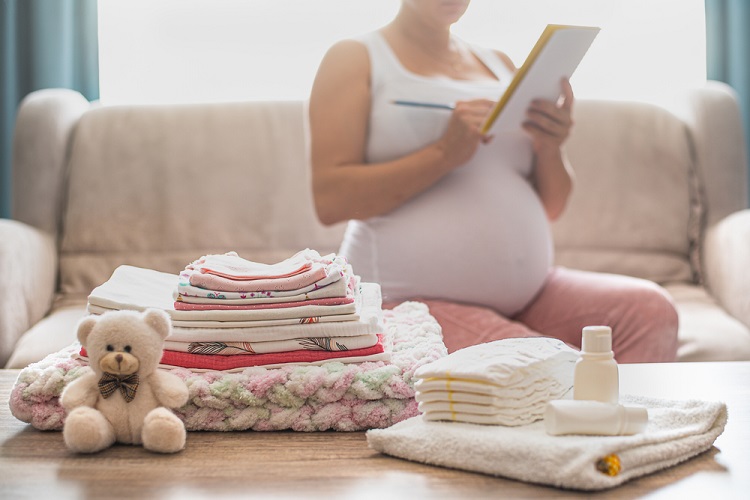Healthy Home, Healthy Baby: Renovation Tips for Pregnant Women

Creating a safe and healthy living environment is essential for pregnant women, as it directly affects the well-being of both the mother and the developing baby. Renovating your home during pregnancy requires careful planning and consideration to minimize potential hazards and ensure a comfortable space. In this article, we will explore renovation tips for pregnant women, focusing on assessing potential hazards, planning renovations, ensuring safety during the process, making pregnancy-safe material and design choices, and implementing post-renovation precautions.
Table of Contents
Assessing potential hazards
Before embarking on any renovations, it is crucial to identify and address potential hazards in your home. During renovations, your main concern should be to stay healthy. Common hazards include lead-based paint, asbestos, mold and mildew, chemicals, volatile organic compounds (VOCs), and allergens. Consulting professionals for testing and assessment is essential to accurately detect these hazards and take appropriate measures.
You should make sure to hire a licensed lead inspector to test for lead-based paint, seek asbestos testing services, and consult mold inspection and remediation experts. Additionally, consider consulting an environmental specialist to assess the presence of VOCs.
Planning renovations
When speaking of renovation tips for pregnant women, timing and careful planning are vital. Avoid major renovations during the first trimester when the baby’s organ development is at its peak. Instead, schedule renovations and home improvements for the second trimester, when the risk of complications is relatively lower. During the third trimester, it is crucial to minimize exposure to dust and fumes.
You should plan your renovations accordingly, allowing ample time for completion. Set a realistic budget and prioritize renovations based on potential risks and exposure. Moreover, consider energy-efficient and sustainable options that benefit both your health and the environment.
Ensuring safety during renovations
Hiring qualified contractors experienced in working with pregnant women is essential to ensure safety during renovations. Choose contractors who are licensed and certified, and request references and reviews to gauge their expertise and professionalism. Implement safety measures such as sealing off renovation areas from the rest of the house to prevent dust and debris from spreading.
Provide contractors with proper protective equipment to minimize their exposure to harmful substances. Adequate ventilation is crucial to reduce fumes and maintain a healthy indoor environment. Regular cleaning and dust control are also important to minimize the risk of contamination. Maintaining a safe and organized workspace is vital to prevent accidents and ensure a smooth renovation process.
Pregnancy-safe material and design choices
When selecting materials for your renovated home, prioritize pregnancy-safe options. Flooring materials should be low in volatile organic compounds (VOCs) or completely VOC-free. Consider natural and non-toxic flooring alternatives such as bamboo, cork, or hardwood with non-toxic finishes. Opt for low- or no-VOC paints and eco-friendly wallpapers to minimize the release of harmful chemicals into the air.
When choosing furniture and decor, select non-toxic and natural materials. Avoid flame-retardant chemicals commonly found in upholstered furniture. Opt for sustainable and organic options that promote a healthy and eco-friendly living environment. Lighting choices should provide adequate illumination while creating a soothing atmosphere. Additionally, evaluate electrical safety and reduce electromagnetic fields (EMFs) by ensuring proper wiring and using EMF shielding materials where necessary.
After renovations – how to safely clean your home?
One of the most important renovation tips for pregnant women is to clean the home after renovation. Doing this while pregnant requires extra care and attention to maintain a healthy living environment. Dust and debris from the renovation process can linger and pose potential risks to both the pregnant woman and her developing baby. Therefore, it is crucial to thoroughly clean the renovated areas. Additionally, decluttering and finding storage space becomes essential during this time. According to experts from Bravo Moving, finding suitable storage solutions allows for a clutter-free and safer environment. This will also minimize the risk of accidents and facilitate easier cleaning.
Removing unnecessary items and organizing belongings will help create a sense of order and reduce dust accumulation. By prioritizing cleanliness, decluttering, and finding storage space, pregnant women can ensure a clean and well-organized home that promotes their overall well-being during this sensitive period.
Moving while pregnant – stay safe
Moving while pregnant can be an overwhelming experience, as it involves physical exertion and added stress during an already sensitive time. Hiring professional moving assistance becomes even more crucial in such situations. If you have a new location in mind, professional movers can handle the heavy lifting, packing, and logistics, allowing you to focus on taking care of yourself and your growing baby. They have the expertise to navigate the challenges of moving, ensuring a smooth transition to your new home. By delegating the moving tasks to professionals, you can minimize the physical strain and emotional stress associated with moving, enabling you to prioritize your well-being and settle into your new space with peace of mind.
Post-renovation precautions
Once the renovations are complete, it is important to take post-renovation precautions to maintain a healthy home environment. Thoroughly clean renovation areas, removing any remaining dust or debris. Use air purifiers or ventilation systems to improve air quality and remove lingering odors. You should also allow time for the off-gassing of new materials before moving back into renovated spaces.
Regular maintenance and inspections are essential to prevent future issues. Monitor your home for potential hazards, conduct routine maintenance to address any problems promptly, and take good care of your health. You can also schedule periodic inspections by professionals to ensure ongoing safety and well-being.
Conclusion
Creating a healthy home environment is of utmost importance for pregnant women. By following these renovation tips for pregnant women, pregnant women can ensure their homes are safe and conducive to their well-being and the health of their babies. Assessing potential hazards, carefully planning renovations, ensuring safety during the process, making pregnancy-safe material and design choices, and implementing post-renovation precautions are all crucial steps in creating a healthy living space. By prioritizing their health and taking appropriate measures, pregnant women can enjoy a comfortable and safe home during this special phase of their lives. Remember, a healthy home leads to a healthy baby.
Leave a reply
You must be logged in to post a comment.



















